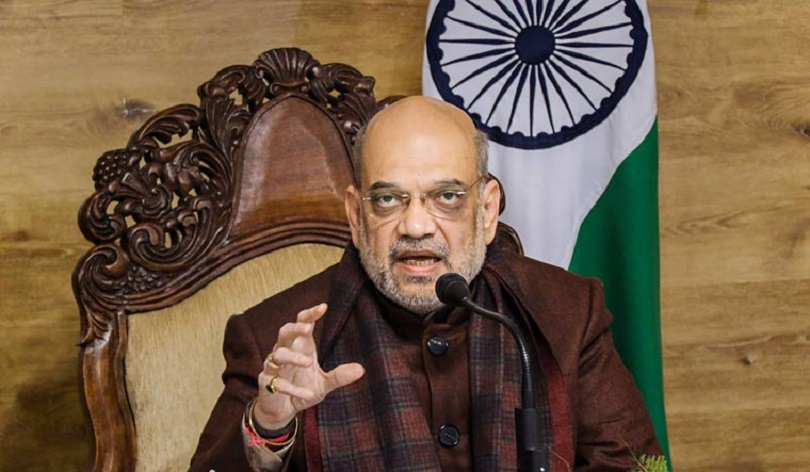Srinagar: The High Court has rejected a 2019 Public Interest Litigation (PIL) challenging the maintainability of the Public Safety Act (PSA), a widely used “controversial” preventive detention law in Jammu and Kashmir.
The PIL was filed by the senior advocate of J&K High Court, Syed Tasaduq Hussain in the wake of “extensive” preventive detentions of political activists, lawyers, businessmen and others in the wake of abrogation of the Article 370 by the Government of India in August 2019.
The petitioner, a well-known constitutional expert, had invoked the jurisdiction of J&K High Court “stating that about 2000 people have been detained and 253 habeas corpus petitions post lockdown, (imposed after the ending of Article 370) have been filed”.
Amongst other reliefs sought by the petitioner, the major relief was for direction to the Union of India to bring into force the amendments made to Article 22 of the Constitution of India.
Chief Justice Tashi Rabstan and Justice MA Chowdhary heard the petition and said “the issue of detention of citizens as raised in this petition is already pending adjudication before this court, therefore, in our considered opinion, this PIL is not maintainable as being a parallel litigation”.
The bench rejected the PIL for not being maintainable. However, it observed that the leftover persons who have not challenged their respective detention orders passed against them under the PSA are at liberty to question it.
The petition in public interest contended that the amendment effected in Article 22 of the Constitution of India has not been brought into force in Jammu and Kashmir.
The delegation of powers to detain the persons under Sections 8 and 16 of the Jammu and Kashmir Public Safety Act, 1978 in Divisional Commissioners or District Magistrates is illegal and that also Section 10 of the enactment was contrary to law, it argued.
The petitioner challenged the legality of Sections 8 and 16 of the Jammu and Kashmir Public Safety Act, 1978 also on the grounds of violation of Article 14 of the Constitution of India.
“PSA is illegal because it contravenes the 44th (1979) amendment to the Constitution of India. Union of India was bound to bring this amendment into force,” read the petition.
It said “amendment provided drastic changes that a person could be detained under PSA initially only for a period of two months and that chairman of the advisory board would either be Chief Justice of the state or a sitting judge of the High Court so that the matter is reviewed dispassionately”.
Union of India, according to the petitioner advocate, is flouting and violating the will of the Parliament which is a negation of democratic temper of the Constitution of India.
While the petition points out that for the last 46 years amendment to Article 22 has not been brought into force, it sought direction from the court to the Union of India for bringing into force the same.
Underlining that “power to detain is power of the state” the petition said that a “divisional commissioner or district magistrate cannot detain a person.”
The petitioner submitted that the detainee cannot be moved from one place of detention without show cause. The petitioner is relying on a judgment of the House of Lords in England which, he submits, still holds good.
D C Raina, the Advocate General, referred to the provisions of Article 35(C) of the Constitution of India in support of his submissions that the writ petition is without merit.
He argued that in view of the provisions of the J&K Reorganization Act, 2019, the writ petition may not be maintainable. So far as Section 8 and 16 of the J&K Public Safety Act is concerned, it is in consonance with the provisions of the Constitution of India, he said.
Article 22 in Constitution of India says that no person who is arrested shall be detained in custody without being informed, as soon as may be, of the grounds for such arrest nor shall he be denied the right to consult, and to be defended by a legal practitioner of his choice. But this does not happen in Kashmir, said a lawyer.
The Article further says that every person who is arrested and detained in custody shall be produced before the nearest magistrate within a period of twenty-four hours of such arrest and no such person shall be detained in custody beyond the said period without the authority of a magistrate. This provision is also flouted in the region, he said.
Objections to PIL by the Home Department, Government of India, state that the PIL does not meet the requisite conditions for filing a PIL.
It further contended that the relief sought by the petitioner, even otherwise cannot be allowed either on the touchstone of law holding the field or under the PIL jurisdiction of this court.
It also said that the relief sought is not permissible under law in view of authoritative pronouncement of the Apex court, reported in 1982 vol 1 SCC 271 titled A.K Roy vs. Union of India.
Raina, the Advocate General, vehemently argued that as the persons who are detained under the PSA have already approached the court by filing habeas corpus petitions questioning their detention orders. Therefore, the issue raised in the PIL cannot be considered as it would tantamount to double adjudication on the same issue.







